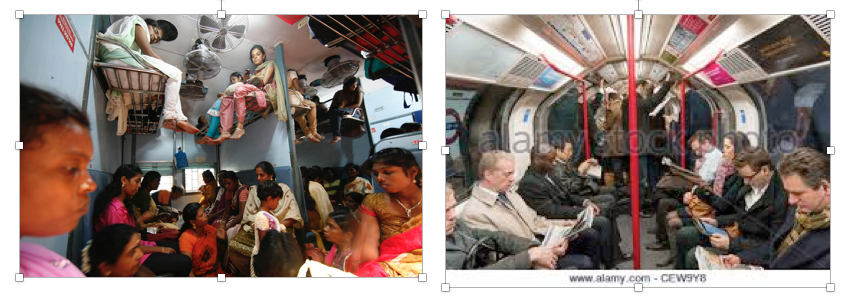The complexity of waiting.
Your boss summons you for a meeting: she can be late, but it would be unwise for you to be. Or you pass your boss in the corridor as she is talking to another colleague: she asks you to wait while she finishes what she has to say, but the conversation goes on and on. You are doubly frustrated by having to listen to matters which don’t concern you, and by being delayed on the task you are on. Do you dare interrupt and negotiate a meeting at a later time?
These are trivial examples, but being asked to wait often reflects a power relationship, the membership or otherwise of a group, and an indication of social status. The groups of people who are likely to be made to wait the longest are the poor, the unemployed, asylum-seekers, and the otherwise marginalised, who face endless iterations of delay in their dealings with borders or state bureaucracy. Sometimes whole populations of people are asked to wait years, sometimes for generations for a resolution of their displacement and refugee status, like the Palestinians for example. There are hierarchies within societies and between societies and the length of time spent waiting is an index of powerlessness. We have recently witnessed long queues of people waiting to leave the airport in Kabul, while the majority of Afghans have no chance of leaving.
But if you have a first world passport you are unlikely to wait as long in the immigration queue as you are if you are a national of a country in the Global South. If you are a business traveller you are likely to board first and perhaps be accelerated through immigration on your arrival. Money, status, nationality, relationships with the powerful, can all make a difference to gaining access, to being let in, to avoiding bureaucratic entanglements, to getting justice. British citizens are already experiencing their change in status of choosing to leave the EU as they have their passports stamped and join the queue of ‘other nationals’.
But even the privileged have been unable to avoid the uncertain waiting that has afflicted us all during the pandemic. We have been locked down, endlessly waiting, for a resolution, a way out, for hope for the future. In a neoliberal age which privileges action, agency, the constant remaking of the self, we have all experienced, more or less, what it means to have our ability to plan our lives profoundly curtailed. Moreover, we have come to think of ourselves as infinitely networked, speeded up, able to gratify our desires instantly. In contemporary organisations and in normal times we are constantly speeding towards an idealised future. Instead, during the last period we have got used to living with the kind of radical uncertainty that populations in the majority world have long been used to. We are thrown back upon ourselves knowing that our plans are highly contingent on circumstances beyond our control.
In large groups and small, the Complexity and Management Symposium will consider the complexities of waiting, of dwelling in uncertainty. The day will comprise a mixture of small and large groups in the morning and workshops in the afternoon presented by Symposium delegates. If you have an idea for a workshop you would like to present, then please write to me at c.mowles@herts.ac.uk.
I will set up a booking site in the next few weeks on the UH website.
Looking forward to seeing you there.









